#Sergei Puskepalis
Photo

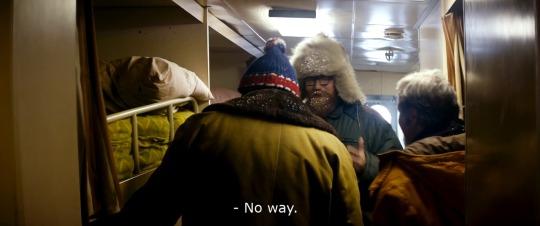
Ледокол [The Icebreaker] (Nikolay Khomeriki - 2016)
#Ледокол#The Icebreaker#Nikolay Khomeriki#disaster film#Sergei Puskepalis#Pyotr Fyodorov#Aleksandr Pal#Antarctica#Alexey Barabash#Vitaliy Khaev#Olga Smirnova#comedy film#History of the Soviet Union#Anna Mikhalkova#Mikhail Somov#Aleksandr Yatsenko#Dmitriy Podnozov#sailors#Murmansk#nuclear icebreaker#Saint Petersburg#Sevastopol#Russians#Terrore tra i ghiacci#Soviet era#Antarctic waters#mutiny#The diamond arm#Mikhail Gromov#USSR
9 notes
·
View notes
Text

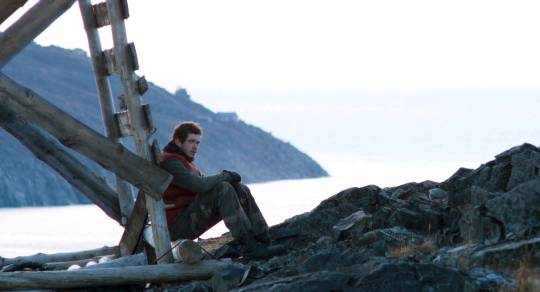



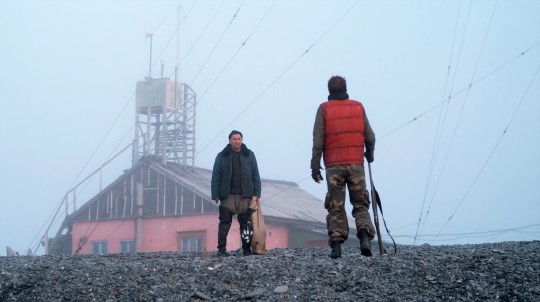


h o w i e n d e d t h i s s u m m e r, 2010 🎬 dir. alexei popogrebski
#film#drama#How I Ended This Summer#how i ended this summer 2010#Alexei Popogrebski#grigoriy dobrygin#Sergei Puskepalis#Как я провёл этим летом#Как я провёл этим летом 2010
1 note
·
View note
Text

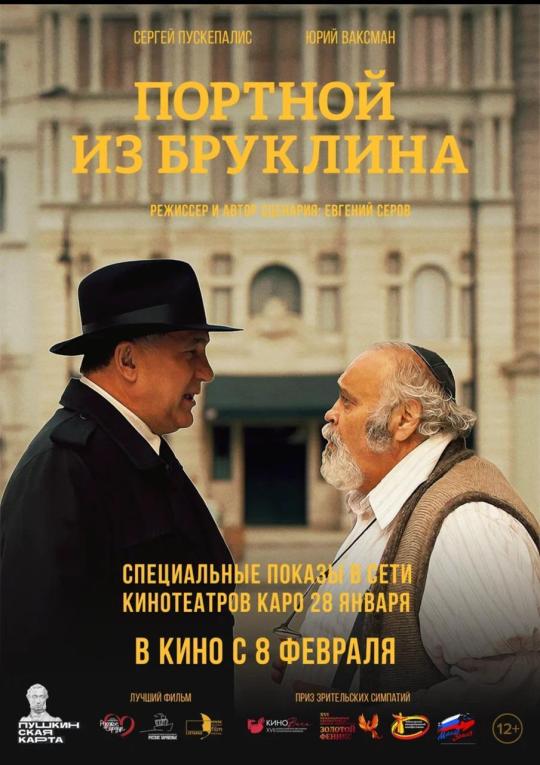
Замечательный фильм.
1 note
·
View note
Text
“On the simplest level this Russian film, which won its stars, Grigory Dobrygin and Sergei Puskepalis, best actor awards at the 2010 Berlin International Film Festival, is a suspenseful man-braving-the-elements adventure movie in which every excursion beyond the shabby cabin where the men live and work is fraught with physical peril. Communications to the central station (to which they transmit climatological data via two-way radio) are carried on through a haze of static. That station is their lifeline to the outside world.
But “How I Ended This Summer” is also a psychological thriller in which their mutual distrust deteriorates into a potentially deadly game of cat and mouse. Sergei Gulybin (Mr. Puskepalis), a taciturn, bearish man in his 50s with years of experience on the job, and Pavel Danilov (Mr. Dobrygin), a recent college graduate hired as his summer assistant, metaphorically represent the old Russia and the new.
In the old Russia you stoically do as you are told to the best of your abilities; in the new, disobedience, shirking and petulance have replaced an unquestioned devotion to duty. The old Russia is symbolized by a technological relic: an abandoned nuclear electrical generator on the island. In the new Russia the device is a curiosity that becomes a potential murder weapon.
(…)
“How I Ended This Summer” begins slowly, the better to steep you in an atmosphere of drabness and chill and a sense of being trapped in a limbo where time stretches out endlessly. You might even describe its austerely beautiful but intimidating Arctic Circle setting (the movie was filmed on the northernmost tip of Chukotka in extreme northeastern Siberia) as a circle of hell. It being summer, the temperature remains above freezing, and the sun, hovering low on the horizon, filters through the fog and clouds to create pastel-shaded layers of shifting indirect light.
In Pavel Kostomarov’s cinematography, which won an award for outstanding artistic achievement at the Berlin festival, the camera repeatedly pulls back to observe the characters from afar and evoke the crushing metaphysical weight of this empty landscape on the humans inching along in the distance. You can feel how the barrenness, along with the incessant low roar of wind and waves, punctuated by the plaintive mewing of the gulls, can slowly drive people mad. Sergei relates a cautionary tale of a conflict between two meteorologists that ended in a shooting death.
(…)
Above all “How I Ended This Summer” is a merciless contemplation of the fragile human psyche under siege. Engulfed by a vast unknown, without the protective distractions of civilization, you have only your insecure, frightened inner voice to guide you. This ultimate measure of one’s mettle is a test that many of us would probably fail.”
“Eight years ago, Popogrebsky made his directorial debut with Roads to Koktebel, a road movie in which a penniless, alcoholic former aero-engineer makes a journey with his 12-year-old son from Moscow to a rundown Crimean seaside town where he once worked in happier times. It was a most accomplished work, reminiscent of Tarkovsky and De Sica. His new film, while hardly mainstream, takes up themes from Koktebel but gradually shunts them into a more conventional direction.
In the earlier film one suspected a lurking allegory about contemporary Russia. Here it is unavoidable. "I would never intentionally put elements of parable into my story," Popogrebsky has said. "However, if the story grows beyond the concrete time and place in which it is set, and if it strikes some universal or personal chord in a viewer, for me this means that my mission has been accomplished." I find it impossible, in the film's complex moral resolution, not to see Sergei and Pavel as representing different sides of Putin's Russia, one shaped by older traditional ways, the other struggling to discover a new set of values.
At the 2010 Berlin festival, Sergei Puskepalis and Grigory Dobrygin rightly shared the prize for best actor, while Pavel Kostomarov's haunting, evocative and at times breathtaking photography received the Silver Bear for artistic achievement. The film itself went on to win the best film award at last year's London film festival.”
#how I ended this summer#popogrebski#alexei popogrebski#dobrygin#puskepalis#berlin film festival#russia#art#cinema
3 notes
·
View notes
Text
Metro (2013)
Director: Anton Megerdichev
Starring: Sergey Puskepalis, Anatoliy Belyy, Svetlana Khodchenkova
Terror strikes the underground train system in Moscow in the form of a flood from a collapsed tunnel.
One night Sergeich notices water in the underground train tunnel, and informs the necessary personnel, but they assure him everything is in order and that they are aware of the water.
The film then…

View On WordPress
0 notes
Link
#Action Movies#Drama Movies#Petr Fedorov#Sergey Puskepalis#Anna Mikhalkova#2016 Movies#IMDb 6.2 Movies
0 notes
Text
Reseña y resumen de la película sobre el Mar Negro (2015)
Reseña y resumen de la película sobre el Mar Negro (2015)
Robinson es un líder fuerte, pero solo si define la fuerza como una mezcla de intensidad aterradora y una habilidad para presionar los botones de los demás. Sus marineros son básicamente una variedad de botones gigantes que caminan, y mientras Robison los martilla, se martillan entre sí. Los rusos (Grigory Dobrygin, Konstantin Khabensky, Sergey Seksler, Sergey Klesnikov, Sergey Puskepalis) son…

View On WordPress
0 notes
Video
youtube
Arctic Timelapse - Chukotka 2008
The Chaun Bay thawing period occurred over 21 Jun through 26 Jul in this year.
Snow begins sticking in October. Ice returns to the Chaun Bay around 16 Oct.
According to КЯПЭЛ production facts, the first snow at Valkarkay began falling on 3 Aug. The summer months averaged +5°C. Sergei Puskepalis stated that the filming crew arrived on 22 Jun [interview with Versiya-Saratov].
0 notes
Text
Le métro de Moscou : 300 km de voies, 6 millions de passagers par jour. A l’heure de pointe, une des conduites qui serpentent sous le fleuve s’affaisse, et une monstrueuse inondation déferle dans les tunnels. L’impact de la vague sous-terraine avec les trains bondés et stations saturées est imminent…
Origine du film : Russie
Réalisateur : Anton Megerdichev
Scénaristes : Denis Kuryshev, Viktoriya Yevseyeva
Acteurs : Svetlana Khodchenkova, Sergey Puskepalis, Anatoliy Belyy, Aleksey Bardukov, Kseniya Berezina, Stanislav Duzhnikov
Musique : Yuriy Poteenko
Genre : Catastrophe, Drame, Thriller
Durée : 134 minutes
Date de sortie : 12 août 2013
Année de production : 2013
Sociétés de production : Profit
Distribué par : Seven7
Titre français : Subwave
Notre note : ★★★☆☆
“Metro” ou “Subwave” pour la distribution française, est un film catastrophe russe datant de 2013, réalisé par Anton Megerdichev, à qui l’on doit également “Dark World” (2010). Les acteurs principaux sont Sergei Puskepalis, qu’on a pu voir dans “The Icebreaker’ (2016), Svetlana Khodchenkova, qu’on a pu voir dans “The Warrior” (2015), Katerina Shpitsa, qu’on a pu voir dans “Flight Crew” (2016), et Yelena Viktorovna Panova, qu’on a pu voir dans “The Age of Pioneers” (2017).
L’histoire proposée par “Metro” nous invite à suivre un groupe de personnes qui va se retrouver au cœur d’une catastrophe dans le métro moscovite. Andrei Garin (Sergei Puskepalis) est chirurgien, il accompagne sa fille Ksenya (Anfisa Wistinghausen) à l’école. Vlad Konstantinov (Anatoly Bely) est un homme d’affaires, et face aux embouteillages, il gare sa voiture pour emprunter le métro. Galina (Elena Panova) qui boit de l’alcool sur la voie publique est obligée de fuir lorsque la police veut l’interpeller. Pour se faire elle fonce dans la première rame de métro qui se présente. Durant le trajet, le plafond d’un tunnel sur le parcours du métro, cède sous la pression de l’eau et envahit la galerie. Le conducteur du train actionne les freins de secours. Le train déraille et s’écrase contre les trombes d’eau et les décombres. Certains passagers sont tués alors que les survivants vont tenter de s’organiser pour survivre à la montée des eaux…
La construction narrative de “Metro” est tout ce qu’il y a de plus classique avec la plupart des films catastrophe. On va se focaliser sur quelques personnages qui n’ont pas forcément de connexion les uns avec les autres, et, qui par la force des choses vont voir leurs destins liés. Puis arrive la catastrophe et ses conséquences directes. Enfin, on observe comment les survivants vont tenter de s’en sortir et les difficultés qu’ils rencontrent. De ce côté-là, on peut aisément dire, sans prendre trop de risque, qu’il n’y a rien d’innovant en terme de mise en scène.
Le principal souci de “Metro” réside dans la longueur. Les 134 minutes deviennent pénibles en raison du manque de rythme. Bien que le récit soit fluide, certains personnages apparaissent comme ridicules, notamment de par les dialogues qui nous sont apparus comme inutiles, comme illogiques en fonction de la situation, et parfois même stupides. Viktoriya Evseeva et Denis Kuryshev, le duo de scénaristes, auraient gagné en simplifiant l’histoire. De son côté, Anton Megerdichev, le réalisateur, aurait gagné en dynamisme en abrégeant certaines scènes qui tirent beaucoup trop en longueur.
Afin de donner du relief à leur récit, les cinéastes ont ajouté une sous-intrigue en incorporant un trio amoureux, où le mari et l’amant se retrouvent dans la même galère par la force des choses. Les éléments d’intrigue sont familiers et se limitent à savoir qui va s’en sortir et parvenir à s’extraire des galeries inondées du métro. Comme souvent, l’intégralité des protagonistes ne s’en sortiront pas. L’aspect dramatique est donc renforcé par la disparition de certains des personnages principaux, alors qu’on apprenait à les connaître et qu’on commençait à éprouver une certaine sympathie à leur encontre.
Des éléments de productions, on peut saluer la qualité de la photographie proposée par Sergey Astakhov et Sergey Shultz. Les effets spéciaux sont plutôt réussis, et on peut même préciser que c’est une certaine surprise, n’étant en rien habitué aux productions russes. L’édition, également orchestrée par Anton Megerdichev, est mal équilibrée entre la catastrophe qui intervient assez rapidement dans le développement, et les séquences de palabres qui alourdissent considérablement la fluidité du récit.
“Subwave” a fait l’objet d’une édition en DVD ainsi qu’en Blu-ray, paru le 12 août 2013 chez Seven7. Pour de plus amples renseignements, n’hésitez pas à consulter la fiche du film sur le site DVD.Fr.
En conclusion, “Metro” est un film catastrophe sympathique, disposant d’une histoire originale, d’une intrigue classique et d’un développement familier. Le rythme est un peu trop lent, le récit est fluide, mais le métrage s’étire trop en longueur, en se focalisant un peu trop sur des intrigues secondaires. La photographie est agréable, les effets spéciaux sont bien maîtrisés et l’édition est mal équilibrée. La distribution offre des prestations mitigées au service de personnages parfois discutables, pour ne pas dire ridicules. L’ensemble se laisse regarder et apporte quelques moments de satisfaction.
youtube
METRO (2013) ★★★☆☆ Le métro de Moscou : 300 km de voies, 6 millions de passagers par jour. A l’heure de pointe, une des conduites qui serpentent sous le fleuve s’affaisse, et une monstrueuse inondation déferle dans les tunnels.
#Aleksey Bardukov#Anatoliy Belyy#Anton Megerdichev#Kseniya Berezina#Sergey Puskepalis#Stanislav Duzhnikov#Svetlana Khodchenkova
0 notes
Text
The Icebreaker streaming
Nationalités : Russia
Genre : Action, Aventure
Date de sortie : 20 octobre 2016
De : Nikolay Khomeriki
Avec : Pyotr Fyodorov, Sergey Puskepalis, Aleksandr Pal
Vers le brise-glace « Mikhail Gromov » déplace un énorme iceberg. En quittant la collision, le navire tombe dans le piège à glace et est forcé de dériver près de la côte de l’Antarctique.
from Streaming VF http://streamovf.org/the-icebreaker-streaming/
0 notes
Photo
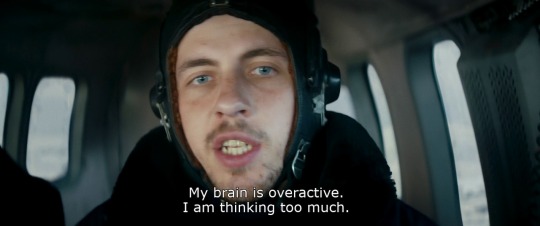
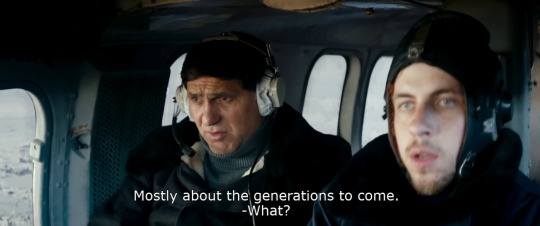
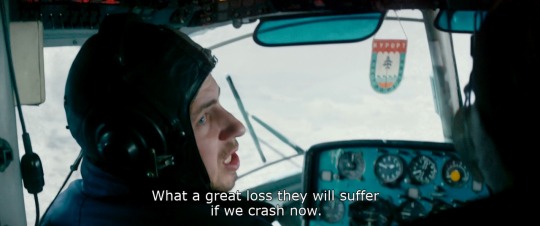
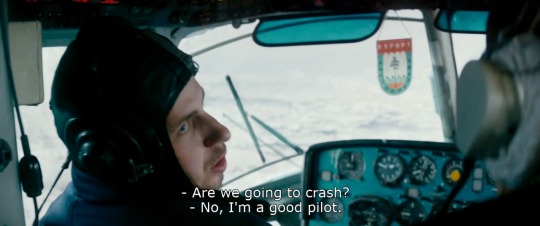
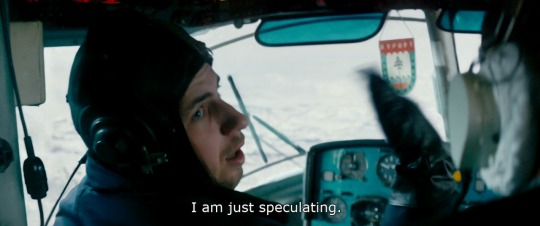
Ледокол [The Icebreaker] (Nikolay Khomeriki - 2016)
#Ледокол#The Icebreaker#Nikolay Khomeriki#disaster film#Sergei Puskepalis#Pyotr Fyodorov#Aleksandr Pal#Antarctica#Alexey Barabash#Vitaliy Khaev#Olga Smirnova#joking#History of the Soviet Union#Anna Mikhalkova#Mikhail Somov#Aleksandr Yatsenko#Dmitriy Podnozov#sailors#Murmansk#nuclear icebreaker#Saint Petersburg#Sevastopol#Russia#Terrore tra i ghiacci#Soviet era#Antarctic waters#mutiny#Mikhail Gromov#leadership#USSR
1 note
·
View note
Photo


WATCHED
(Last Night)
Such an intense flick.
I bit my fingernails off to bits!!
Great cast. incredibly well done though.
I enjoyed every minute.
I would suggest it to any and everyone.
If you’ve ever seen DAS BOOT this movie is right up there with it.
#black sea#jude law#tobias menzies#sergei puskepalis#grigoriy dobrygin#konstantin khabensky#karl davies#david threlfall#ben mendelsohn#scoot mcnairy#submarine#gold#gold bars#watching
0 notes
Text
"Kak ya provyol etim letom" (2010)
A.K.A.: "How I ended this summer"
Directed by: Aleksei Popogrebsky
Country: Russia
Length: 130 min.
Genre: Drama
Cast: Grigory Dobrygin, Sergei Puskepalis
Cinematographer: Pavel Kostomarov
Music by: Dmitriy Katkhanov
Editor: Ivan Lebedev
#2010s#drama#grigory dobrygin#popogrebsky#sergei puskepalis#russia#2010#ussr#Aleksei Popogrebsky#Pavel Kostomarov#Dmitriy Katkhanov#Ivan Lebedev
3 notes
·
View notes
Photo



Ледокол [The Icebreaker] (Nikolay Khomeriki - 2016)
#Ледокол#The Icebreaker#Nikolay Khomeriki#disaster film#Sergei Puskepalis#Pyotr Fyodorov#Aleksandr Pal#Antarctica#Alexey Barabash#Vitaliy Khaev#Olga Smirnova#leadership#History of the Soviet Union#Anna Mikhalkova#Mikhail Somov#Aleksandr Yatsenko#Dmitriy Podnozov#Murmansk#sailors#nuclear icebreaker#Saint Petersburg#Russia#Sevastopol#Terrore tra i ghiacci#Soviet era#Antarctic waters#mutiny#Mikhail Gromov#USSR#stupid
5 notes
·
View notes
Photo



Ледокол [The Icebreaker] (Nikolay Khomeriki - 2016)
#Ледокол#The Icebreaker#Nikolay Khomeriki#disaster film#Sergei Puskepalis#Pyotr Fyodorov#Aleksandr Pal#Antarctica#Alexey Barabash#Vitaliy Khaev#Olga Smirnova#icebreaker#History of the Soviet Union#Anna Mikhalkova#Mikhail Somov#Aleksandr Yatsenko#Dmitriy Podnozov#sailors#Murmansk#nuclear icebreaker#Saint Petersburg#Sevastopol#Russia#Terrore tra i ghiacci#Soviet era#Antarctic waters#mutiny#Mikhail Gromov#leadership#USSR
2 notes
·
View notes
Photo









Mockup posters created by Кинокомпания «ВОЛЬГА»
My favorite of these posters is the snow-flurried one. The artistic filters were applied very effectively: the foreground is blue-ish and darkened darkened; the sky is stark white with a hard, painterly texture; the figures are backlit but Sergei's shadows get special, heavy hatching; his form absolutely looms over Pasha and the diagonal composition gives a strong sense of dynamism to the standoff. Pasha doesn't stand head-on in opposition but rather turned to the side as though he's caught between the fight-or-flight responses with one hand on his shotgun sling. The text is well-balanced in three registers and is printed with an almost-burnt texture. The title itself has a gap between word groups, its letters are a red that is more saturated than Pasha's parka vest, and летом is stylized with a nuclear warning symbol. The tagline seems well-represented by the situation: the confrontation appears to concern the lie, little Pasha is fearful, and about to break into a run. The shoreline is a liminal place that traps him with an angry man on one side and keeps him from heading for the distant, exposed hills on the other side. The title says "summer", the situation is wintry. While I like the yellowy flare of a low sun lighting up Sergei's hand holding the gun, I want to point out it's not the model he uses in the actual film. [imfdb] identifies a SOK-94 Vepr carbine as his personal weapon. Sergei also is caught in several choices while he keeps the barrel pointed down. He could raise it to aim, he might shift his grip and use the stock to cave in Pasha’s senseless head, whatever. (Also, gosh, his hip waders. I think the Russian word for them is bolotniki. Sergei Puskepalis wears them really well.) All in all, I think this stylized poster really reflects Pasha’s state of mind in the film. Reality is warped.
The post-Berlin Russian distribution poster appears more like a sartorial mag or something. While Pasha looks stylish, one might wonder if he's dressed for the weather. Also, check out his camo cargo trousers' fancy pockets. So many zipped up compartments as well as pocket flaps. But his earring isn't visible because it's under his hoodie. I really like the effects on the title text: it's like they're worn out, birch-like in stripes and almost scoured by sand blasts or something. The weird scribble around the text might favor the interpretation that the island makes the characters go crazy. The tagline feels like cordon tape. No entry? Well, too late: radiation doesn't acknowledge boundaries.
Pasha is facing the dark and he's colored in red, grey, brown. Sergei stands in the water with ice and cloudy skies in the background, so much smaller but no less significant. Again, the environmental setting is cold, but the peril is understated here.
There are a lot of pre-distribution English title posters and I picked out the ones that I thought were more appealing. I included the “clean” English poster at the bottom of the photoset because it’s the baseline for the Film Movement cover distributed in the US.
Poster #3 looks pretty busy. The overall color is a chilly blue. Pasha is caught between dangers: the bear is a shorthand for natural dangers, while Sergei is aiming his carbine. The scene with the flare is very memorable to many viewers, but I think it's a little strange to superimpose the image on top of a wide shot of the station. Maybe the idea is that Pasha needs saving from this little outpost of civilization on the frontier. I don't think multiple light sources works out, or at least the sunset flare by Pasha's head ends up feeling out of place. The designer should've stayed with the frosty overlay to keep it simple.
My second favorite is #4 because of the stylization. The overall feeling is a dreamy-moody sepia & black/white blur with stark contrasts. There's a lot of hatchy lines over Pasha, and I can dig how his face is half-indistinct from too much brightness on one side and made strange on the dark side. It’s like, who is this boy supposed to be? The question remains open because the film doesn’t say anything about his background besides his role in station operations. His earring and headphones are more prominent on this one. Sergei again is a little figure. I think the background might be the weather station, but I can't really tell. The backdrop doesn't seem as important, but at least it looks cold. The RTG is entirely blacked out in the foreground and that looks a bit creepy. The text doesn't work out.
The monochromatic blue poster looks okay. It's pretty much the scene in the film shifted onto the utmost edge of the cliff.
The red-black-white poster is an interesting concept. Red is the danger color after all. The bear is given more prominence, but I think the HQ photo makes the fur look really weird. Everyone is facing the left for some reason. The station is just this little strip at the bottom, but I think it deserves more poster space. The slash stained in red is probably meant to be dynamic, but it feels weird.
A couple of distributions use a shot of Pasha facing the camera while he walks along the coast back to the station. Now, the actual sequence that made it into the final cut shows him entirely from the side. It's worth noting that shooting collected about 80 hours of material. I don't think this pose is very remarkable. The Polish release puts the still against a background of ice floes, while the Australian release uses the cliff with a lot of sky. It's interesting how they approached the title text: in the Polish edition, it's red and on a not-100% opacity. The Oz has the title on a single line, but it's crossed out for some reason. They also came up with an entirely different tagline (and I think most foreign distribs omit a tagline entirely).
0 notes